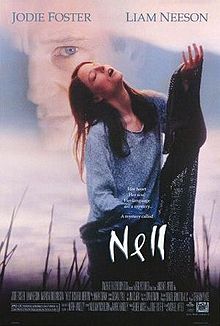5 Tips to Help You Write Imperfectly
Today’s guest post is by Adrian Johansen.
As a writer, when you envision something you want to compose, it’s always perfect. Floating around in your mind, that undefined piece of artwork is incredible. You can’t wait to write it down, to express it in words, to share it with others. Then the moment comes. You sit down, open up your computer—or nab that pen and paper—and you start … writing?
The problem is, what you write will never be what you imagined. It will be haphazard, uncomfortable, and possibly confusing. It may not even look like what you had in mind at all.
What happened? You had the inspiration, the drive, and the skills. And, yet, the piece came out … imperfect.
Overcoming the Fear of Imperfection
If you struggle with imperfect writing, take a deep breath. You’re not alone. You’re in very good company. Artists the world round are familiar with the imperfect and incomplete, with failure. In fact, it was the great Danny DeVito who said, “Failure is part of the creative process. If you’re afraid of it, you can’t really create.”
Take it from a very imperfect writer: inconsistencies and flaws are part of a good writing experience. You’re not conducting a science experiment. You’re composing a piece of art, and it’s meant to be an expression, quirky and imperfect.
Honestly, perfection would be dull. So, if you’re amped to start writing imperfectly, here are some thoroughly imperfect tips and tricks developed throughout a decade-plus of writing.
Tip #1: Be Willing to Laugh at Yourself
Writer’s Doubt is a real thing. Just ask Bryan Hutchinson from Positive Writer. The danger with Writer’s Doubt (yes, we’re capitalizing it to underscore its importance) is realizing it doesn’t come from an external source. It comes from inside yourself.
Anyone can rise up and overcome other people’s condemnation, but can you overcome yourself? It’s possible, but it takes getting to a certain level of comfort and familiarity with your own human propensity to be imperfect.
A suggestion to take the edge off of those doubts? Laugh at yourself.
Laugh at your writing. Write things that you can laugh at. Compose sentences that you can chuckle at as you read through your first draft, all the while knowing it won’t make the final cut.
That’s okay. It’s a placeholder for now, and a funny one at that. Laugh at yourself. It’s quite relieving.
Tip #2: Time Yourself
If you’re having trouble starting or you’re hesitating over how to say something, try timing yourself. You need to write 1,000 words? You’ve been thinking about them all morning or day or week?
You have one hour. Ready? Write.
It doesn’t matter what comes out. Power through that writer insecurity and get a draft done in the next sixty minutes. You’ll accomplish one of three things by doing this:
- You’ll power through your doubts and write what you were trying to write.
- You’ll power through your doubts and write something horrible, removing it from your mind and freeing you up to write something else.
- You’ll power through your doubts and write a mixture of content that you’ll keep and other things that’ll need to be reworked, replaced, or cut out of the final product.
Did you notice something? You overcame your doubts in all three of these scenarios.
Tip #3: Wear the Right Hats at the Right Times
Editors and authors both work with the written word—and the similarities stop there. On the one hand, as an author, you’re required to create, invent, and innovate. On the other hand, editors polish an already written product. They focus on structure, content, accuracy, and readability.
Most people serve in both roles for their own writing. It’s essential that you don’t write when you have your editor hat on. Consciously take it off and put on your author hat.
Once you’re in “author mode,” it’s important you treat it as sacred ground, where imperfection and creativity thrive side by side. Don’t put that editor hat back on until you have a complete first draft to work with.
Tip #4: Expose Yourself to Different Styles of Writing
Writing styles vary dramatically, and chances are your own style is heavily influenced by a number of other authors already. If you find that you’re struggling to adapt what you want to write into your particular writing style, it may be time to broaden your stylistic horizons.
Start by looking up books that you’d like to read. There are a ton of different ways to access free books online or even by mail if you’re a physical-copy-in-hand kind of a reader. You can also get audiobooks on free platforms like LibriVox or subscribe to a new podcast or two.
Regardless of whether you’re reading or listening, pay attention to sentence structure, delivery, and word choices. Soak in the new styles and see what elements you want to add to your own. This can shake things up and give you a boost of writing confidence.
Tip #5: Don’t Get Into Your Own Head
Finally, the advice is cliché, but it’s real nonetheless: don’t get into your own head. If you find that your own lack of production—or even a deadline or other pressure—is part of the problem, slow down, de-stress, and approach your writing from a fresh angle.
There are plenty of ways to de-stress “on the fly.” You can do a breathing exercise, quiet your inner voice and focus on the moment, process through your thoughts by verbally talking to a friend or loved one, or even just go to bed. You can always try again when you’re fresh the next morning.
Perfecting Your Ability to Write Imperfectly
There is no such thing as a perfectly written manuscript. When you take the time to assemble a cascade of singular words into a flowing script, that is where the magic happens.
Can you edit it later? Of course. Will the final product look different from that very imperfect first draft? Most likely. But you can never get to the final draft without starting with an imperfect first one.
Calm your mind, quiet those doubts, and prepare to write the most imperfect piece of literature you’ve ever seen. Just remember to laugh as you go along.
 Adrian Johansen is a writer and adventurer in the Pacific Northwest. She loves sharing knowledge with and learning from others. You can find more of her writing on Contently and Twitter.
Adrian Johansen is a writer and adventurer in the Pacific Northwest. She loves sharing knowledge with and learning from others. You can find more of her writing on Contently and Twitter.
Featured Photo by Nathan Dumlao on Unsplash












Someone at NaNoWrMo said that not editing as she went along created an “existential crisis” in her. I agree. I can’t write a paragraph, a sentence, a word without stepping back and looking it at it and asking, “Is that what you meant to say?” “Is that the best word?” Having a Grammar program running while writing is like having an editor looking over your shoulder continuously. If you’re going to try what used to be called “stream of consciousness” writing, go for it. But turn off the editing program!
Thank you for that. It’s an on-going problem with most writers, I think. Where do you stop in the editing process? How many times should you re-write? Can I make this sentence better? Is this paragraph too long (or too short). It goes on.
Thanks for giving us permission to be imperfect.
I can share my thoughts on that. You can mess around with a manuscript forever, and some do (for many reasons, but usually due to fear of failure, perfectionism, etc.). I would suggest hiring a professional editor and/or writing coach because that person, if experienced enough, can help you see how much work (and what specifically) you still need to do before it’s ready to submit or publish.
This was a very helpful post.